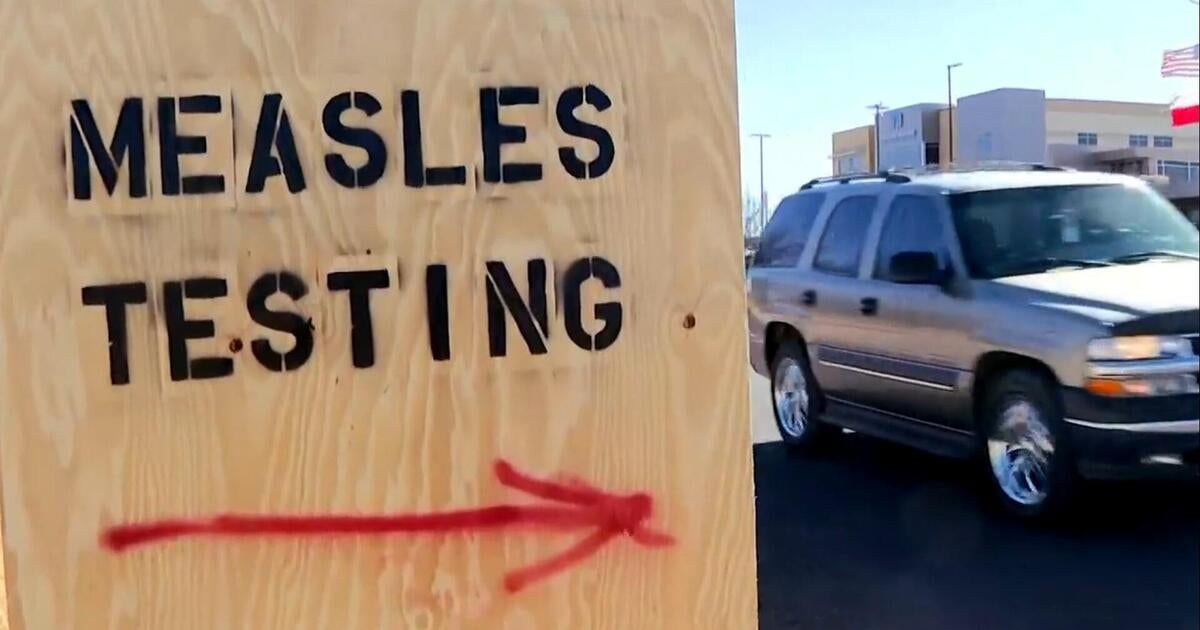Unraveling the Texas Measles Outbreak: Beyond the Mennonite Community
The recent measles outbreak in Texas has sparked widespread concern, not only due to its origins within the Mennonite community but also because of its potential to expand beyond these boundaries. The resurgence of measles—a disease once considered largely eradicated in the United States—has prompted public health officials to investigate the underlying factors contributing to this contagion. This article delves into the dynamics of the outbreak, the implications for public health, and the lessons that can be learned to prevent future occurrences.
Understanding Measles: A Brief Overview
Measles is a highly contagious viral infection that spreads through respiratory droplets from coughs and sneezes. The symptoms typically include a high fever, cough, runny nose, and a characteristic rash. While measles can be a mild disease for some, it can lead to severe complications, including pneumonia, encephalitis, and even death, particularly in young children and those with weakened immune systems. The disease is so contagious that about 90% of non-immune individuals exposed to the virus will contract it.
The Texas Measles Outbreak: What Happened?
The outbreak in Texas has been particularly alarming due to several contributing factors. Initially concentrated within the Mennonite community, the outbreak quickly raised alarms about the potential for broader transmission. As of recent reports, the Texas Department of State Health Services has confirmed dozens of cases, highlighting the urgent need for public health interventions.
Factors Contributing to the Outbreak
Several factors have contributed to the Texas measles outbreak:
- Vaccine Hesitancy: A significant portion of the outbreak can be traced back to vaccine hesitancy, particularly within certain religious communities that may prioritize faith over vaccinations. This reluctance often stems from misinformation about vaccine safety.
- Low Vaccination Rates: In many areas, particularly those with strong anti-vaccine sentiments, vaccination rates have fallen below the herd immunity threshold of 95%. This decline significantly increases the risk of outbreaks.
- Increased Travel: The interconnectedness of our world means that diseases can cross borders with ease. International travel has made it easier for measles to enter communities, particularly those that are not fully vaccinated.
Impact on Public Health
The implications of the Texas measles outbreak extend far beyond the immediate health of those infected. Public health systems are strained as they work to contain the outbreak while also addressing the misinformation surrounding vaccines. The outbreak has highlighted the importance of robust public health strategies, including:
- Education and Awareness: Public health officials are ramping up efforts to educate communities about the safety and efficacy of vaccines. This includes outreach programs targeting vulnerable populations.
- Vaccination Campaigns: Increased access to vaccinations, including free clinics and mobile units, is crucial to improving vaccination rates. The goal is to make vaccines more readily available to communities that are hesitant or unable to access them.
- Monitoring and Response: Swift identification and isolation of cases are critical. Health departments are working closely with healthcare providers to ensure timely reporting and effective containment measures.
Beyond the Mennonite Community: Expanding Concerns
While the outbreak began within the Mennonite community, the potential for spread poses a concern for all Texans. As individuals move in and out of communities, the risk of infection increases. Public health experts are particularly worried about the implications for vulnerable populations, including infants who are too young to be vaccinated and those with compromised immune systems.
Moreover, the social fabric of communities can influence vaccine acceptance. Areas with strong anti-vaccine sentiments may see resistance to public health recommendations, making it crucial for health officials to engage with community leaders and influential voices to build trust.
The Role of Media and Misinformation
The rise of social media has made it easier for misinformation about vaccines to spread. False claims about vaccine safety can lead to fear and hesitancy among parents, ultimately resulting in lower vaccination rates. It’s imperative for public health campaigns to counteract this misinformation with accurate, evidence-based information.
Efforts are underway to work with social media platforms to flag false information and promote credible sources. Engaging with influencers and utilizing community-based approaches can also help bridge gaps in understanding.
The Path Forward: Lessons Learned
The Texas measles outbreak serves as a stark reminder of the importance of vaccination and public health preparedness. The key lessons learned include:
- Importance of Community Engagement: Building relationships within communities can foster trust and lead to higher vaccination rates.
- Need for Clear Communication: Public health messages must be clear, consistent, and grounded in evidence to combat misinformation.
- Proactive Surveillance: Ongoing monitoring of vaccination rates and disease outbreaks is essential for early intervention.
Conclusion: A Call to Action
The Texas measles outbreak highlights the critical role of vaccination in public health. As we navigate this resurgence, it is essential for communities to come together, prioritize education, and support vaccination efforts. By understanding the factors contributing to outbreaks and learning from the current situation, we can work towards preventing future occurrences and protecting public health.
In fostering an environment of trust and collaboration, we can ensure that measles, and other preventable diseases, do not become a recurring threat. The road ahead may be challenging, but through collective action and informed decision-making, we can safeguard the health of our communities.
See more WebMD Network



